Looking for a laugh that’s guaranteed to make your eyes roll? We’ve compiled the ultimate collection of corny dad jokes that are so bad, they’re actually good! These groan-worthy punchlines have been perfected over generations of fathers who’ve mastered the art of making their children simultaneously laugh and cringe.
We know there’s something uniquely special about dad jokes. They’re clean, they’re silly, and they come with that signature paternal delivery that somehow makes even the lamest puns entertaining. Whether you’re a dad looking to expand your repertoire or someone who secretly enjoys these cheesy one-liners, you’ll find plenty of ammunition here for your next family gathering.
25 Incredibly Corny Dad Jokes That Will Make Your Eyes Roll
- What do you call a factory that makes okay products? A satisfactory!
- Why don’t scientists trust atoms? Because they make up everything!
- How does a penguin build its house? Igloos it together!
- Why don’t skeletons fight each other? They don’t have the guts!
- What’s the best thing about Switzerland? I don’t know, but the flag is a big plus!
- Did you hear about the mathematician who’s afraid of negative numbers? He’ll stop at nothing to avoid them!
- Why don’t eggs tell jokes? They’d crack each other up!
- How do you organize a space party? You planet!
- What did the ocean say to the beach? Nothing, it just waved!
- Why don’t we tell secrets on a farm? Because the potatoes have eyes, the corn has ears, and the beans stalk!
- How do you make a tissue dance? Put a little boogie in it!
- What’s brown and sticky? A stick!
- Why couldn’t the bicycle stand up by itself? It was two tired!
- What did the buffalo say when his son left for college? Bison!
- How do you catch a squirrel? Climb a tree and act like a nut!
- What’s orange and sounds like a parrot? A carrot!
- Why did the scarecrow win an award? Because he was outstanding in his field!
- What do you call cheese that isn’t yours? Nacho cheese!
- Why couldn’t the leopard play hide and seek? Because he was always spotted!
- Did you hear about the guy who invented the knock-knock joke? He won the “no-bell” prize!
- What do you call a fake noodle? An impasta!
- How do you make holy water? You boil the hell out of it!
- What’s the difference between a poorly dressed man on a trampoline and a well-dressed man on a trampoline? Attire!
- What do you call a cow with no legs? Ground beef!
The Classic Pun Masters: Dad Jokes About Wordplay
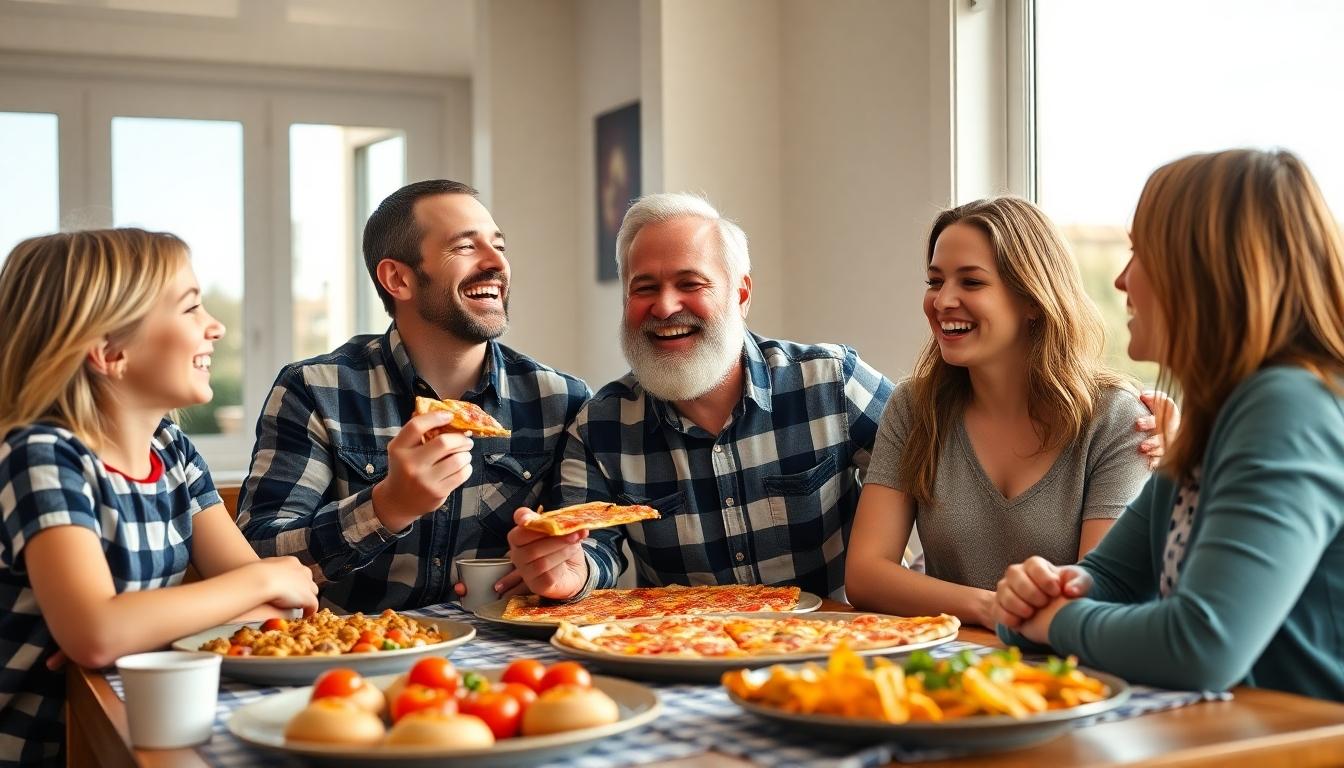
Dad jokes are known for their clever wordplay that makes us both laugh and groan simultaneously. Research shows these corny quips actually have positive effects on children’s development, helping them grow into healthy adults.
Food Puns That Are Hard to Digest
Food-themed dad jokes serve up plenty of laughs while making everyone at the table roll their eyes. “Why was the pizza in a bad mood? Because it was feeling crusty.” This classic example demonstrates the perfect blend of wordplay that defines the dad joke genre. Dishes and ingredients provide endless material for pun-loving fathers everywhere. Studies indicate these jokes work on multiple levels, functioning both as puns and as a form of playful teasing humor that children find simultaneously amusing and annoying. Food puns typically rely on dual meanings of culinary terms, creating that perfect recipe for a laugh-groan combination that’s essential to the dad joke experience.
Weather Jokes That’ll Storm Your Patience
Weather jokes forecast a high chance of eye-rolling from your audience. “Why did the meteorologist quit his job? Because he couldn’t forecast his future.” Research has found that the delivery of these jokes can significantly impact their reception, with jokes accompanied by genuine laughter being rated funnier than those without. Clouds, rain, snow, and sunshine provide dads with atmospheric opportunities for wordplay that’s impossible to escape. Weather puns work particularly well because they reference common experiences everyone can relate to, making them universally applicable regardless of the climate you’re in. These meteorological quips demonstrate how dad jokes can work as effective ice breakers in social situations, even when they receive more groans than applause.
“Hi Hungry, I’m Dad”: The Infamous Name Jokes
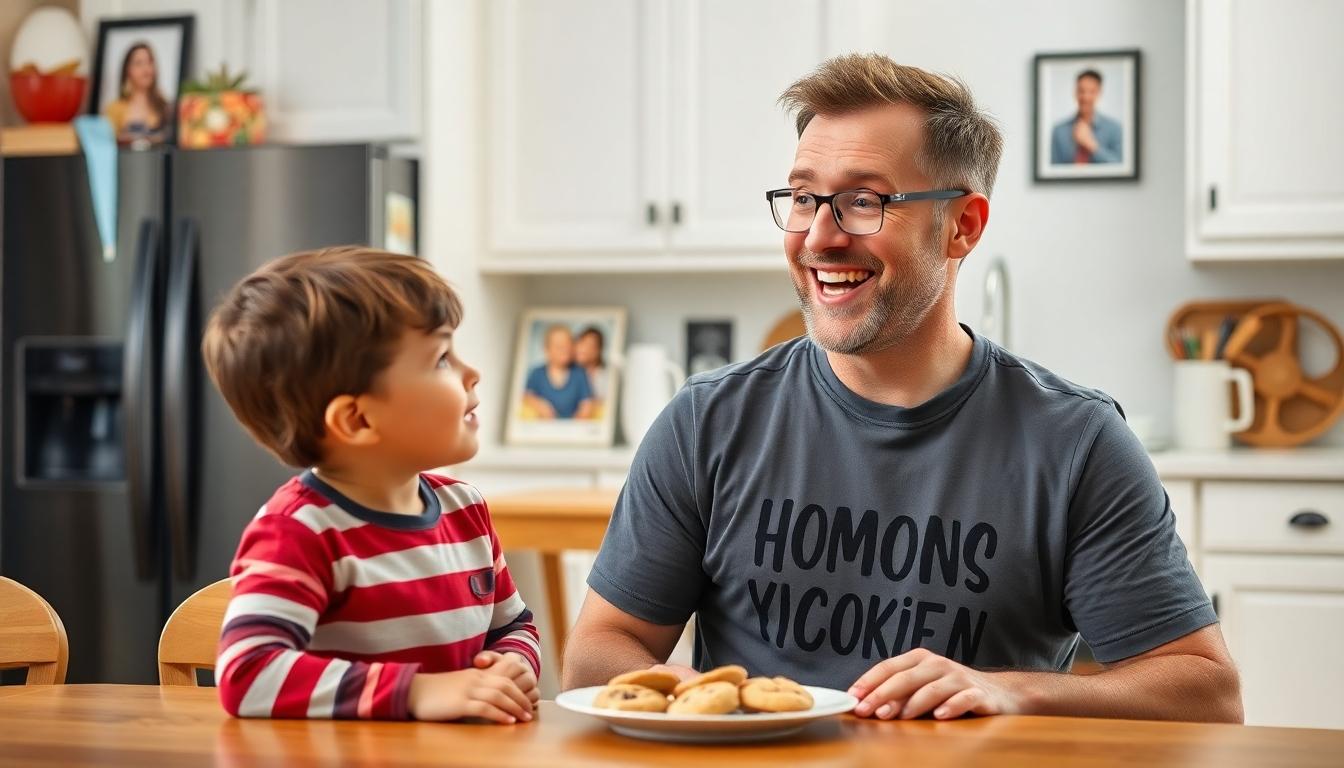
Name jokes represent the quintessential category of dad jokes, featuring the classic misdirection that dads have perfected over generations. These jokes typically play on common phrases and names, creating humor through deliberate misunderstanding.
The “I’m Serious/Sirius” Constellation
The “I’m Serious/Sirius” joke stands as a stellar example of astronomical wordplay in the dad joke universe. When someone says “I’m serious,” a quick-witted dad might respond, “I thought you were John!” or “No, you’re not Sirius, that’s a constellation!” This clever pun combines everyday conversation with astronomical knowledge, creating a perfect storm of groan-inducing humor. Astronomical references work particularly well in these jokes because they allow dads to appear simultaneously knowledgeable and corny. Research suggests these types of jokes actually help children develop verbal reasoning skills while introducing them to concepts they might not otherwise encounter.
The “Can I Have” Trap All Kids Fall Into
Children unwittingly set themselves up for dad jokes whenever they begin a sentence with “Can I have…” This phrase creates the perfect opening for the classic verbal trap. When a child asks, “Can I have a cookie?” the dad immediately pounces with “I don’t know, CAN you?” emphasizing the difference between “can” (ability) and “may” (permission). This grammatical sleight of hand teaches children about proper language usage while simultaneously frustrating them. Studies indicate these interactions actually serve an important developmental purpose, helping kids navigate wordplay and understand the nuances of language. The predictable pattern of these jokes creates a familiar ritual between parent and child that, even though the eye-rolling, often becomes a cherished family ever-changing over time.
Dad Jokes That Become Family Traditions
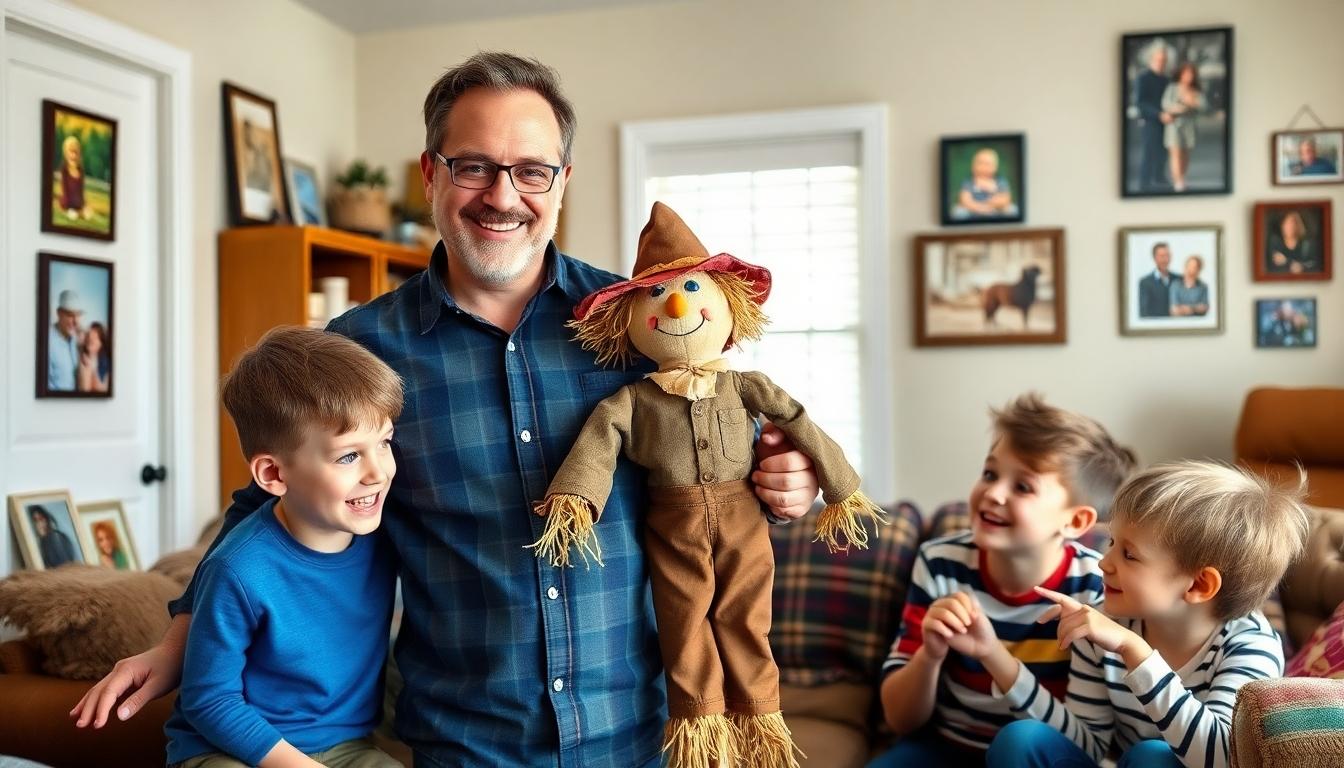
The Jokes That Get Better With Age
Dad jokes actually improve over time, gaining charm through repetition and familiarity. Research from the British Psychological Society shows these intentionally awkward puns foster family bonding by creating predictable humor patterns children can anticipate and enjoy. Their simplicity makes classics like “Why did the scarecrow win an award? Because he was outstanding in his field!” endure for decades across multiple family gatherings. The supposedly “unfunny” nature of these jokes paradoxically strengthens social bonds by normalizing lighthearted embarrassment and building resilience against social anxiety. Studies indicate that exposure to dad jokes correlates with reduced embarrassment sensitivity in children, eventually promoting greater self-confidence in social situations.
The Ones Your Dad Heard From His Dad
Many dad jokes function as verbal heirlooms passed down through generations, creating a sense of continuity in family humor. Jokes like “I’m reading a book about anti-gravity. It’s impossible to put down!” often originate from oral traditions, with fathers recycling material they first heard from their own dads. This generational recycling solidifies these jokes’ role in family lore, establishing traditions that connect grandparents, parents, and children. The formulaic structure ensures easy recall, making them ideal for multi-age humor that resonates across different generations. Their reliance on puns and wordplay allows adaptation to changing contexts while retaining core familiarity, which explains why they persist even though changing comedy trends. Research highlights that this intergenerational humor helps children develop emotional regulation by reframing potentially awkward moments as playful rather than stressful.
Science and Math Dad Jokes for the Intellectually Corny
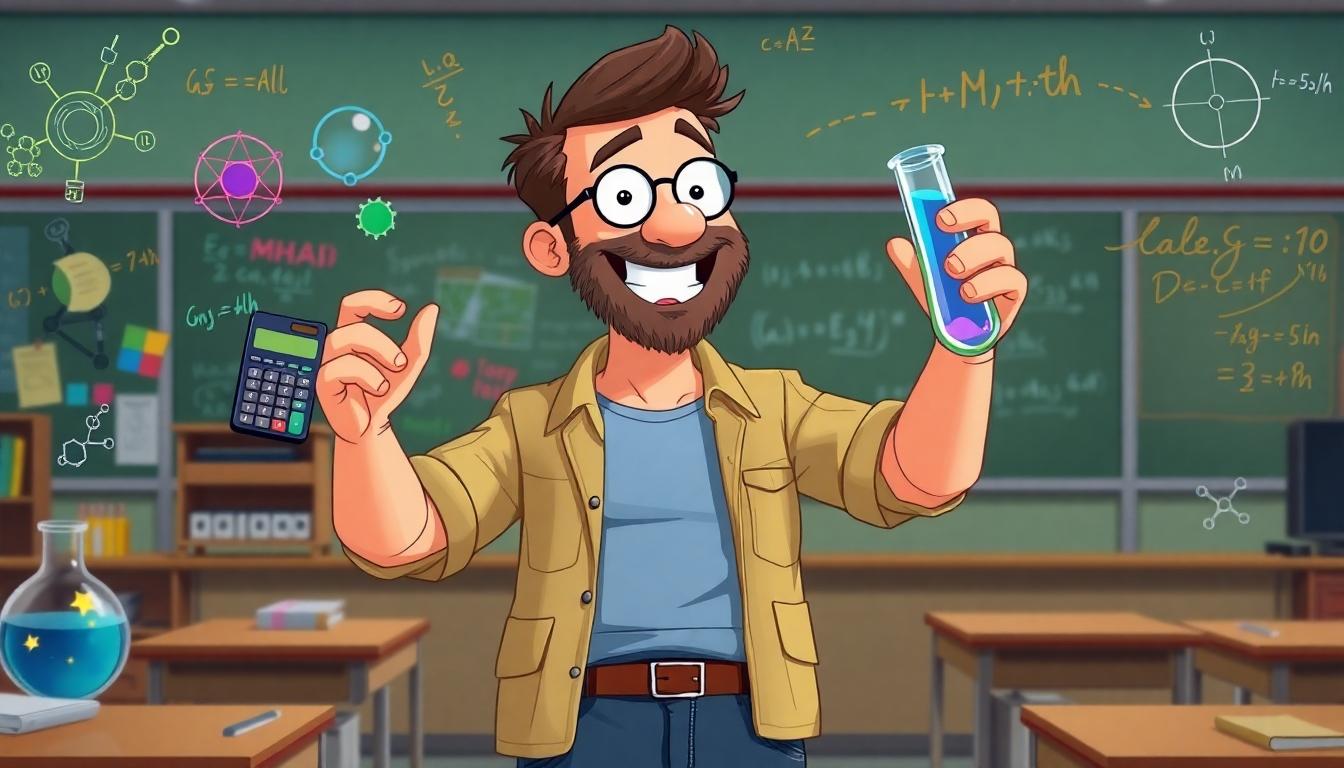
For the STEM enthusiasts, these scientifically accurate yet groan-inducing jokes combine academic knowledge with classic dad humor. We’ve collected some of the best mathematical and scientific puns that will have your family rolling their eyes in no time.
Math Jokes That Just Don’t Add Up
Ready for some numerical nonsense? Math jokes are among the most cleverly constructed dad jokes around. “Why was six afraid of seven? Because seven eight nine!” remains a classic that plays on the phonetic similarity between “ate” and “eight.” Geometry enthusiasts will appreciate the parallel lines joke: “Parallel lines have so much in common… it’s a shame they’ll never meet.” Math teachers often share their favorite vacation spot as Times Square, combining urban geography with mathematical terminology. Number play creates endless opportunities for dad humor, such as “Why did the two 4s skip lunch? They already 8!” Tool aficionados aren’t spared either, with jokes like “Which tool is best for math? The multi-pliers” demonstrating perfect wordplay between multiplication and pliers. These jokes rely on predictable punchlines paired with STEM terminology, making them accessible to both math enthusiasts and casual learners.
Chemistry Jokes That Get No Reaction
Chemical elements provide fertile ground for some truly reactive humor. “Why don’t scientists trust atoms? Because they make up everything!” stands as perhaps the most famous chemistry dad joke, playing on the dual meaning of “making things up.” Romantic chemistry gets its moment with jokes like “Did you hear oxygen and magnesium hooked up? OMg!” – cleverly combining element symbols to form a common expression of surprise. Failed experiments become comedic fodder too: “I told a chemistry joke… but there was no reaction.” These jokes work because they combine scientific terminology with everyday phrases, creating the perfect formula for dad humor. Their effectiveness stems from disciplinary terminology and hyper-literal interpretations that even non-scientists can appreciate, though chemistry enthusiasts might enjoy them on a molecular level.
Holiday-Themed Dad Jokes for Year-Round Groaning
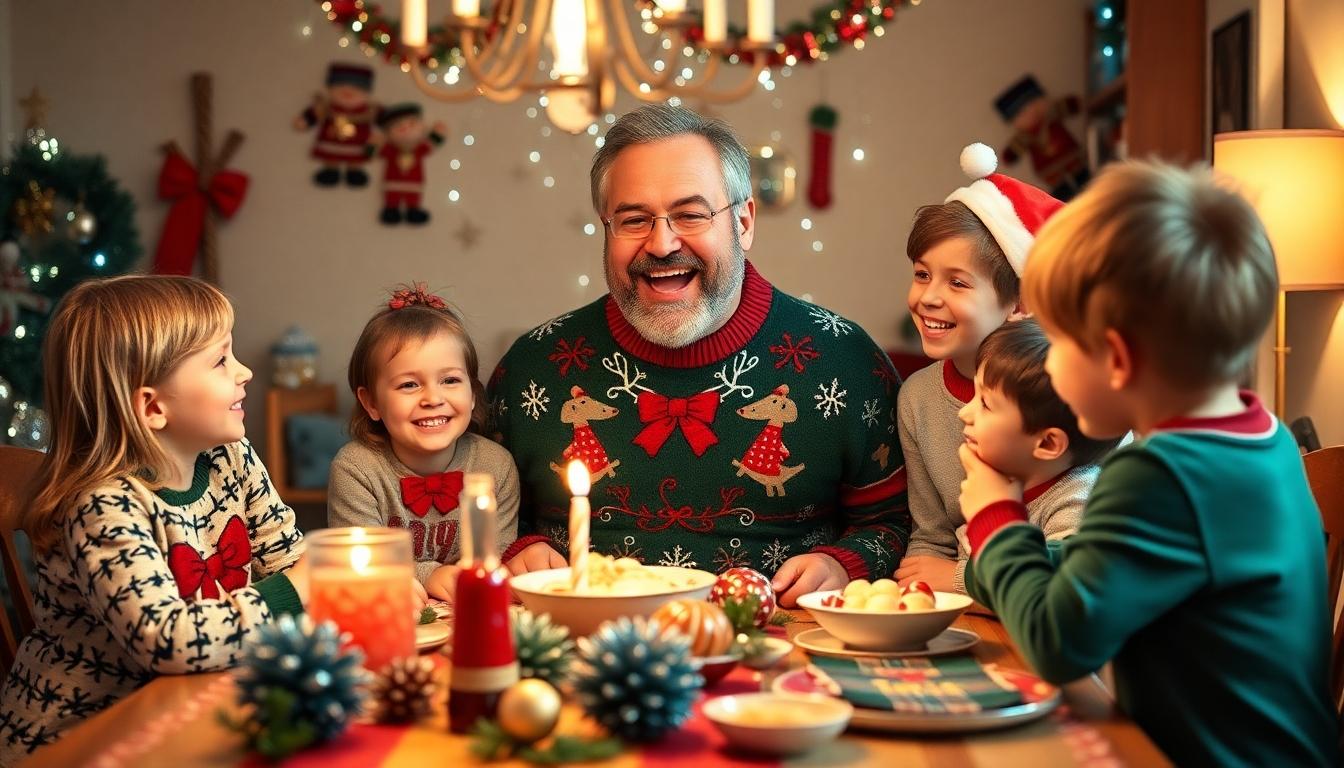
Holiday celebrations provide the perfect backdrop for dads to unleash their corniest jokes. Research shows these seasonal quips serve important developmental purposes while creating lighthearted family moments.
Christmas Crackers That Don’t Pop
Christmas offers abundant opportunities for dad joke excellence. According to recent studies, these holiday puns create low-stakes embarrassment that actually helps children develop resilience and social skills. Santa-themed jokes like “Why does Santa go to the gym? To improve his ‘elf’-esteem!” exemplify the classic pun structure that makes dad jokes so effective. Breakfast-themed Christmas humor also ranks highly among families, with “What’s a snowman’s breakfast? Frosted Flakes!” demonstrating the accessible wordplay that encourages family participation. These yuletide groaners often operate as anti-humor, using their predictable absurdity to provoke eye rolls while simultaneously strengthening family bonds during the holiday season.
Halloween Jokes That Aren’t Scary (Just Scary Bad)
Halloween provides fertile ground for spine-tingling dad jokes that are more groan-worthy than frightening. Research published by the British Psychological Society indicates these seasonal jokes help children navigate discomfort humorously, fostering emotional regulation skills. Classic Halloween dad humor like “Why don’t skeletons fight? They don’t have the guts!” showcases the “weaponized” teasing element that characterizes effective dad jokes. Ghost-themed puns such as “What’s a ghost’s favorite dessert? Boo-berry pie!” demonstrate how simple wordplay makes these jokes accessible to all family members. Science studies suggest the social element of these jokes actually enhances their perceived funniness, especially when accompanied by genuine laughter from family members – creating memorable holiday traditions that develop important social skills in children.
Why Dad Jokes Are Actually Good for Child Development
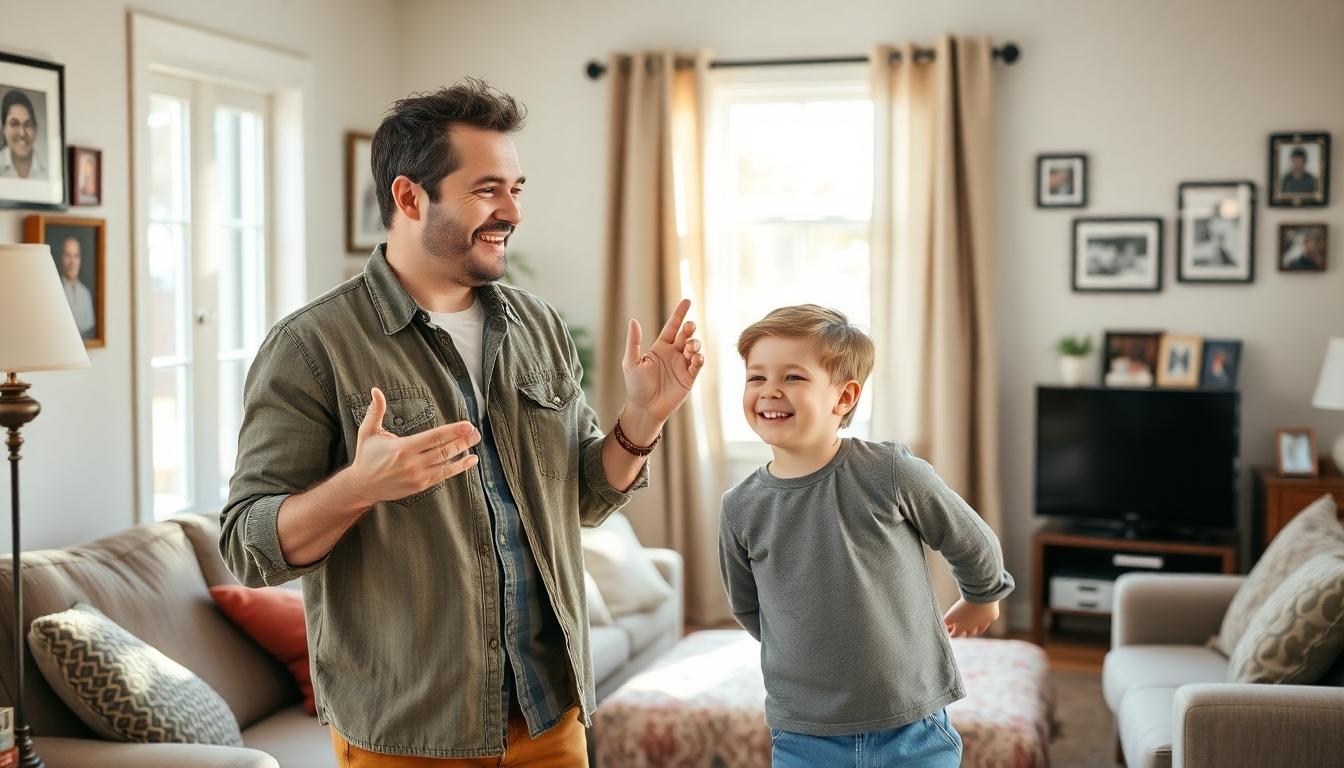
Building Resilience Through Cringe
Dad jokes build emotional resilience in children by exposing them to mild embarrassment in a safe environment. Research shows that fathers who regularly tell these groan-worthy puns are actually helping their children develop important coping mechanisms. The British Psychological Society’s study confirms that this exposure to mild social discomfort “toughens up” kids, preparing them for more challenging social situations later in life. Children learn to process feelings of awkwardness when dad delivers yet another cheesy one-liner, developing emotional fortitude with each eye-roll-inducing joke. Fathers who persist with their unfunny jokes even though the reactions model how to handle social awkwardness confidently, teaching kids valuable lessons about emotional regulation.
Creating Family Bonds Through Shared Humor
Family connections strengthen significantly through the shared experience of corny humor. The Children’s Trust emphasizes that humor introduces lightheartedness into parent-child interactions, improving communication patterns and establishing trust. Dad jokes create a unique family language that everyone understands, offering consistent opportunities for playful engagement. Their age-appropriate and inoffensive nature makes them particularly valuable for children of all ages, serving as a safe form of humor that the whole family can participate in. These shared moments of groaning and giggling create lasting memories while reinforcing familial bonds through a common experience.
Cognitive and Social Benefits
Dad jokes deliver surprising cognitive advantages by challenging children to understand complex wordplay and resolve linguistic incongruities. When kids hear jokes like “Why don’t eggs tell jokes? They’d crack each other up,” they’re actually exercising problem-solving skills and developing linguistic flexibility. Fathers demonstrate authentic self-expression when they deliver these deliberately cheesy jokes even though potential mockery. This modeling of self-confidence sends powerful messages to children about embracing individuality regardless of social pressure. Kids learn that it’s okay to be themselves even when others might judge them, gaining important social courage through their dad’s commitment to cringe-worthy comedy.
Pedagogical Value
Research by Marc Hye-Knudsen reveals dad jokes as sophisticated developmental tools that serve multiple learning purposes simultaneously. Their intentional lameness functions as a clever dual strategy: building resilience while teaching humility and authenticity. Dad jokes demonstrate that it’s acceptable to be imperfect and that humor doesn’t always need to be sophisticated to be effective. Children witness their fathers embracing imperfection confidently, learning valuable lessons about self-acceptance. This pedagogical approach provides a foundation for healthy emotional development that extends far beyond the momentary groan a punchline might elicit.
How to Deliver the Perfect Corny Dad Joke

Telling a dad joke is one thing, but delivering it with perfect comedic timing and execution takes your corny humor to the next level. We’ve compiled expert techniques to help you master the art of dad joke delivery.
Timing Is Everything
Mastering the timing of your dad jokes can transform even the corniest pun into comedy gold. A well-timed pause before delivering the punchline builds anticipation and maximizes the comedic effect of your joke. Experts agree that this strategic pause gives your audience a moment to prepare for the inevitable groan or laugh that follows.
Varying your pacing throughout the joke adds another dimension to your delivery. Slow down for emphasis on key words or speed up during the setup to create contrast with your deliberately measured punchline. The rhythm of your delivery can highlight the wordplay and make the humor more effective, especially when you emphasize the punny parts with slight changes in your speaking pace.
The Art of the Dad Joke Poker Face
Maintaining a completely serious expression while delivering your dad joke dramatically amplifies its humor. The contrast between your deadpan delivery and the absurdity of the joke creates the perfect comedic tension that dad jokes are famous for. Your straight face serves as the perfect setup—the more seriously you treat the joke, the funnier it becomes when the punchline lands.
Occasional exaggerated gestures can complement your poker face and add depth to your joke telling. A strategic eyebrow raise, a subtle hand movement, or an exaggerated pause can punctuate your punchline perfectly. These physical elements of comedy work best when they’re unexpected, catching your audience off guard and improving the surprise element that makes dad jokes work.
Additional Tips
Incorporating observational humor into your dad jokes makes them more relatable and effective. Draw inspiration from everyday situations that your family experiences, creating jokes that resonate with your exact audience. Family-exact jokes often land better because they connect to shared experiences.
Regular practice helps you develop natural timing and delivery that makes your jokes seem effortless. Try out new jokes in low-pressure situations before unveiling them at larger gatherings. Many dad joke connoisseurs recommend practicing in front of a mirror to perfect your poker face.
Surprising your audience with unexpected twists or punchlines generates bigger laughs. The element of surprise is particularly effective with dad jokes since the format is familiar but each punchline can still catch listeners off guard. Building your joke toward what seems like an obvious conclusion, then delivering an unexpected punchline, creates the perfect combination of predictability and surprise that defines the best dad jokes.
How to Respond When Your Dad Drops Another Corny Joke

Acknowledge the Effort
Research shows that even an eye-roll acknowledges your dad’s bonding attempt. We often underestimate how important our reactions are to the joke-teller, even when the jokes themselves make us cringe. Studies indicate that validating these attempts at humor helps strengthen family bonds, regardless of whether you found the joke genuinely funny. Your acknowledgment, even if accompanied by a groan, sends the message that you appreciate the effort to connect through humor.
Play Along with the Joke
Captivating with mock groans or reciprocal puns sustains lighthearted family interaction. We can amplify the fun by responding with our own wordplay or continuation of the joke’s theme. For example, if your dad says, “Why can’t you trust atoms? They make up everything!” you might respond with another science pun to keep the momentum going. This back-and-forth creates a positive feedback loop that encourages more shared humor experiences.
Embrace the Hidden Lesson
Recognizing the subconscious value in normalizing harmless social fumbles benefits everyone involved. Psychological studies indicate that dad jokes, even though their cringeworthy nature, foster positive developmental outcomes in children. The predictable, often unfunny nature of these jokes teaches kids to handle awkwardness and builds resilience against embarrassment. When we understand this developmental benefit, responding positively becomes easier.
Share the Joke with Others
Retelling your dad’s best (or worst) jokes spreads the fun beyond your immediate family circle. We’ve found that sharing these jokes helps perpetuate family traditions and can even strengthen your own joke-telling abilities. Corny dad jokes like “My neighbor gave me a new roof for free, he said it was on the house” often become part of family lore that gets passed down through generations.
Appreciate the Anti-Humor
Dad jokes derive their unique charm from their anti-humor quality—being intentionally unfunny or obvious. We can enhance our enjoyment by appreciating this distinctive characteristic rather than expecting sophisticated comedy. This perspective shift allows us to enjoy the jokes for what they are: simple, clean humor designed to create shared moments rather than elicit genuine laughter.
The Ultimate Collection of Dad Jokes to Add to Your Arsenal

Wordplay & Puns
Wordplay and puns form the backbone of classic dad jokes, creating those perfect groan-worthy moments everyone secretly loves. “Why is Peter Pan always flying?” Because he neverlands! These linguistic twists showcase the brilliant simplicity that makes dad jokes so memorable. “What’s 90 degrees but covered with ice?” The North and South Poles! The beauty of these jokes lies in their unexpected connections between common phrases and surprising interpretations. “Why did the picture go to prison?” It was framed! Another gem that perfectly captures this style is “What’s orange and sounds like a parrot?” A carrot!
Animal-Themed Humor
Animal jokes represent a treasure trove of dad-style comedy that never fails to entertain kids and adults alike. “Why do seagulls fly over the sea?” If they flew over the bay, they’d be bagels! These animal-based quips combine familiar creatures with unexpected wordplay. “Why can’t you hear a pterodactyl go to the bathroom?” Because the ‘P’ is silent! The animal kingdom provides endless opportunities for dad joke excellence. “What do you call a line of men waiting for haircuts?” A barberqueue! These jokes work exceptionally well when introducing children to new animal facts while wrapping them in humor.
Object-Based Gags
Everyday objects transform into comedy gold in the hands of dad joke enthusiasts. “Don’t trust atoms” because they make up everything! These object-centered jokes turn mundane items into unexpected punchlines through clever wordplay. “I used to hate facial hair, but then it grew on me” represents the perfect blend of observation and unexpected twist. “How does a penguin build its house?” Igloos it together! Common objects provide accessible reference points that make these jokes instantly relatable to everyone in the family.
Conclusion: Embracing the Corny Dad Joke Heritage
Dad jokes remain an enduring form of family entertainment that does so much more than just make us groan. They build resilience help develop language skills and create lasting bonds across generations.
Whether you’re a dad looking to expand your repertoire or someone who appreciates the simple charm of corny humor we hope this collection has brightened your day and given you plenty of material to share at your next family gathering.
Remember it’s not just about the punchline but the memories created when we laugh together. So embrace these gloriously groan-worthy jokes and keep the tradition alive. After all the best dad jokes never get old—they just become apparent!
Frequently Asked Questions
What exactly are dad jokes?
Dad jokes are clean, silly puns or wordplay jokes typically characterized by their corny nature and simple humor. They often involve obvious punchlines that elicit groans as much as laughter. These jokes are called “dad jokes” because they’re stereotypically told by fathers, who enjoy embarrassing their children with deliberately cheesy humor.
Why do dads tell these corny jokes?
Dads tell corny jokes for multiple reasons: they’re family-friendly, help build resilience in children by exposing them to mild embarrassment in a safe environment, create shared moments of laughter, and strengthen family bonds. Research suggests these jokes also help children develop coping mechanisms and emotional fortitude while improving their language skills through wordplay.
Do dad jokes actually benefit child development?
Yes, dad jokes benefit child development in several ways. They help children build emotional resilience, enhance problem-solving skills, improve linguistic flexibility, and develop verbal reasoning abilities. These jokes also teach children that imperfection is acceptable and that awkward moments can be reframed as playful rather than stressful, contributing to healthy emotional development.
What makes a good dad joke?
A good dad joke typically features clever wordplay, simple puns, and a predictable but satisfying punchline. The ideal dad joke is clean, family-friendly, easy to remember, and elicits both groans and laughs. The delivery is equally important—timing, maintaining a serious expression, and building anticipation with a well-timed pause before the punchline all contribute to the joke’s effectiveness.
How should you respond to dad jokes?
The best response to a dad joke is acknowledging the effort with a mix of appreciation and playful exasperation. A good-natured eye-roll, mock groan, or reciprocal pun keeps the interaction lighthearted. Remember that engaging with these jokes—even through feigned annoyance—strengthens family bonds and creates shared moments that become cherished memories.
Are dad jokes a recent phenomenon?
No, dad jokes are not recent. While the term “dad joke” may have entered popular culture more recently, the style of humor has existed for generations. Many dad jokes are verbal heirlooms passed down through families, creating a sense of continuity in family humor and establishing traditions that connect grandparents, parents, and children across generations.
What are some categories of dad jokes?
Dad jokes span numerous categories including: wordplay and puns (“What’s orange and sounds like a parrot? A carrot!”), food-themed jokes, science and math jokes, holiday-themed jokes, animal jokes, name jokes that rely on misdirection, and “Can I Have” trap jokes. Each category showcases the versatility of dad humor while maintaining the characteristic clean, groan-inducing quality.
Why do dad jokes improve with repetition?
Dad jokes gain charm through repetition because they become familiar inside jokes within families. The predictable nature of these jokes creates anticipation, while repeated tellings become cherished rituals. This familiarity fosters bonding and creates a unique family culture around humor. Additionally, repeated jokes help children learn language patterns and develop comfort with social interaction.







